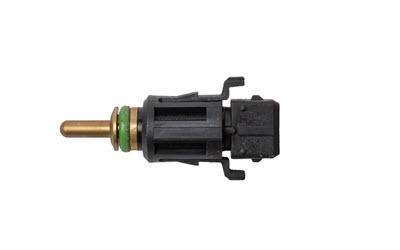
When to Replace the Coolant Temperature Sensor in a Volkswagen
Despite its reliability, a Volkswagen is susceptible to coolant temperature sensor failure. When the coolant temperature sensor fails, you may notice reduced fuel economy, increased emission, illuminated check engine light, overheating engine, stalling and poorly running engine.
The coolant temperature sensor in your Volkswagen is located on the cylinder head or engine block and is partly submerged into the coolant. It measures the engine temperature and transmits the information to the onboard control system for efficient engine performance.
Discussed below are the symptoms and causes of a failed coolant temperature sensor in your Volkswagen.
Symptoms of Coolant Temperature Sensor Failure in your Volkswagen
When the coolant temperature sensor fails, you may notice one or all of the following symptoms:
- Heavy exhaust smoke: When a failed sensor sends inaccurate information that the engine is running cold when it is, in fact, running hot, the result is heavy emission from the exhaust. The Engine Control Module (ECM) would respond to this information by increasing the fuel delivered to the engine, causing increased fuel combustion and consequent smoking exhaust.
- Overheating engine: The ECM will automatically switch off the fan when it receives a false signal of a cold engine, which may cause the engine to overheat. This can cause the piston to attach itself to the cylinder, making the engine seize or even cause irreparable damage. Once the engine runs without efficient cooling, the engine components overheat.
- Beaming check engine light: The onboard computer usually takes note of faulty sensors. Once it detects that the coolant temperature sensor has failed, it triggers the check engine warning to inform the driver of the situation.
- Decreased fuel efficiency: An inaccurate information of a cold running engine results in excess fuel delivered to the engine for combustion. The excess fuel delivered to the engine, in turn, affects your Volkswagen fuel economy and frequent refueling trips.
- Poor engine performance: Apart from reduced fuel efficiency, your engine performance is also impacted. The faulty sensor makes the engine take longer to heat up, idle roughly, and stall due to inappropriate fuel delivery for combustion. The inconsistent air-fuel mixture affects your vehicle’s overall performance.
Causes of Coolant Temperature Sensor Failure in your Volkswagen
A significant cause of the failure is a poor connection with the connector. The connection between the sensor and Powertrain Control Module (PCM) is interrupted because of a poor connection.
The PCM is the brain of your Volkswagen that controls the engine, transmission, and other systems based on the information it gets from other sensors in the vehicle. A bad thermostat can also cause the sensor’s failure.
Maintaining the Coolant Temperature Sensor of your Volkswagen
The coolant temperature sensor in your Volkswagen should be changed around 100,000 miles. However, poor maintenance habits of your cooling system may hamper the sensor’s longevity preventing it from lasting up to 100,000 miles.
If you notice any of the symptoms discussed above, it is best to park your vehicle and contact a professional to avoid causing irreparable damage to your engine. Leaving the problem unattended will cause your Volkswagen to overheat and set a chain of catastrophic reactions in motion.
You also want to watch out for coolant or oil leaks and attend to them immediately. Once oil enters the engine block, the coolant becomes contaminated. Hence, this reduces the lifespan of your coolant temperature sensor.
Oldwick Village Garage: The Best Solution for your Failed Temperature Coolant Sensor
If you catch any of the symptoms discussed above in your Volkswagen, it is an indicator that your temperature coolant sensor has  failed and is due for replacement. Preventive maintenance such as regular servicing and inspection is the key to keeping your Volkswagen in great shape.
failed and is due for replacement. Preventive maintenance such as regular servicing and inspection is the key to keeping your Volkswagen in great shape.
At Oldwick Village Garage, we provide the best European and exotic vehicles service. Our ASE-certified mechanics employ the latest factory-grade tools and equipment to ensure quality maintenance and repairs. We are experienced in fixing malfunctioning coolant temperature sensors in Volkswagen.
We are located in Tewksbury, NJ and have consistently helped the drivers of the Oldwick Village Garage area with emergency repairs or annual maintenance. Please call or visit our shop today. We promise to deliver our service as close to faultless precision as possible.

